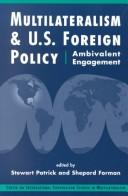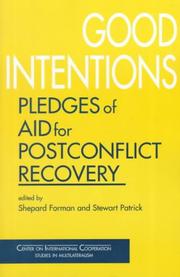| Listing 1 - 10 of 23 | << page >> |
Sort by
|
Book
ISBN: 9780231083669 0231083661 Year: 1975 Publisher: NEW YORK: Columbia university press,
Abstract | Keywords | Export | Availability | Bookmark
 Loading...
Loading...Choose an application
- Reference Manager
- EndNote
- RefWorks (Direct export to RefWorks)

ISBN: 0253392012 Year: 1970 Publisher: Bloomington (Ind.) : Indiana university press,
Abstract | Keywords | Export | Availability | Bookmark
 Loading...
Loading...Choose an application
- Reference Manager
- EndNote
- RefWorks (Direct export to RefWorks)
Book
ISBN: 0231031068 Year: 1975 Publisher: New York : Columbia University Press,
Abstract | Keywords | Export | Availability | Bookmark
 Loading...
Loading...Choose an application
- Reference Manager
- EndNote
- RefWorks (Direct export to RefWorks)
Peasants --- Brazil --- Politics and government --- Rural conditions.
Book
Year: 1975 Publisher: New York-London Columbia University Press
Abstract | Keywords | Export | Availability | Bookmark
 Loading...
Loading...Choose an application
- Reference Manager
- EndNote
- RefWorks (Direct export to RefWorks)

ISBN: 0472104101 Year: 1994 Publisher: Ann Arbor University of Michigan Press
Abstract | Keywords | Export | Availability | Bookmark
 Loading...
Loading...Choose an application
- Reference Manager
- EndNote
- RefWorks (Direct export to RefWorks)

ISBN: 1588260429 1588260186 9781588260420 9781588260185 1685855040 Year: 2002 Volume: *1 Publisher: Boulder: Lynne Rienner,
Abstract | Keywords | Export | Availability | Bookmark
 Loading...
Loading...Choose an application
- Reference Manager
- EndNote
- RefWorks (Direct export to RefWorks)
International relations. Foreign policy --- United States --- Aide internationale --- Aide à l'étranger --- Collaboration internationale --- Cooperation [international ] --- Coopération bilatérale --- Coopération internationale --- Coopération interrégionale --- Coopération multilatérale --- Coopération régionale --- Global governance --- Institutions [international ] --- Institutions internationales --- Interdependence of nations --- International cooperation --- International institutions --- Internationale samenwerking --- World government --- World order --- Foreign relations --- Philosophy --- #SBIB:327H15 --- #SBIB:328H31 --- Cooperation, International --- Institutions, International --- Cooperation --- International relations --- International organization --- Buitenlandse politiek: Noord-Amerika --- Instellingen en beleid: VSA / USA --- -Philosophy. --- -International cooperation. --- International cooperation. --- -International cooperation --- -International relations. Foreign policy --- Philosophy. --- 1989 --- United States - Foreign relations - Philosophy --- United States - Foreign relations - 1989 --- United States of America

ISBN: 1555878792 Year: 2000 Publisher: Boulder (Colo.) : Rienner,
Abstract | Keywords | Export | Availability | Bookmark
 Loading...
Loading...Choose an application
- Reference Manager
- EndNote
- RefWorks (Direct export to RefWorks)
Economic assistance --- Economic assistance. --- Technical assistance --- International cooperation.
Book
Year: 2010 Publisher: Washington, D.C. : The World Bank,
Abstract | Keywords | Export | Availability | Bookmark
 Loading...
Loading...Choose an application
- Reference Manager
- EndNote
- RefWorks (Direct export to RefWorks)
After more than a decade of experience and research on financing arrangements in post conflict countries and fragile states, a consensus has emerged on at least one matter. The core objective is to build effective and legitimate governance structures that secure public confidence through provision of personal security, equal justice and the rule of law, economic well-being, and essential social services including education and health. These governance structures are necessary to ensure that countries do not turn, or turn back, to violence as a means of negotiating state-societal relations. This paper discusses a number of the weaknesses in current financing arrangements for post conflict countries and fragile states, with a focus on Official Development Assistance (ODA). We argue that tensions persist between business-as-usual development policies on the one hand and policies responsive to the demands of peace building on the other. The preferential allocation of aid to 'good performers,' in the name of maximizing its payoff in terms of economic growth, militates against aid to fragile and conflict-affected states. If the aim of aid is redefined to include durable peace, the conventional performance criteria for aid allocation lose much of their force. Compelling arguments can be made for assistance to 'poor performers' if this can help to prevent conflict. Yet the difficulties that initially prompted donors to become more selective in aid allocation remain all too real. Experience has shown that aid can exacerbate problems rather than solving them.
Access to Finance --- Accountability --- Accounting --- Arbitration --- Capacity Building --- Civil Society Organizations --- Conflict and Development --- Consensus --- Constituencies --- Corruption --- Credibility --- Debt Markets --- Developing Countries --- Development Economics & Aid Effectiveness --- Economic Development --- Economic Liberalization --- Elections --- Expenditures --- External Assets --- Finance and Financial Sector Development --- Fiscal Sustainability --- Foreign Aid --- Foundations --- Good Governance --- Governance --- Human Resources --- Human Rights --- International Cooperation --- International Donors --- International Finance --- Legal System --- Macroeconomics and Economic Growth --- National Governance --- Needs Assessment --- Observers --- Opportunity Cost --- Peace & Peacekeeping --- Peacebuilding --- Polarization --- Political Economy --- Political Institutions --- Post Conflict Reconstruction --- Public & Municipal Finance --- Public Finance --- Public Health --- Public Sector --- Roads --- Rule of Law --- Strategic Planning --- Tax Administration --- Tax Evasion --- Tax Policy --- Tax Reform --- Trade Liberalization --- Transaction Costs --- Transparency --- Violence
Book
Year: 2010 Publisher: Washington, D.C. : The World Bank,
Abstract | Keywords | Export | Availability | Bookmark
 Loading...
Loading...Choose an application
- Reference Manager
- EndNote
- RefWorks (Direct export to RefWorks)
After more than a decade of experience and research on financing arrangements in post conflict countries and fragile states, a consensus has emerged on at least one matter. The core objective is to build effective and legitimate governance structures that secure public confidence through provision of personal security, equal justice and the rule of law, economic well-being, and essential social services including education and health. These governance structures are necessary to ensure that countries do not turn, or turn back, to violence as a means of negotiating state-societal relations. This paper discusses a number of the weaknesses in current financing arrangements for post conflict countries and fragile states, with a focus on Official Development Assistance (ODA). We argue that tensions persist between business-as-usual development policies on the one hand and policies responsive to the demands of peace building on the other. The preferential allocation of aid to 'good performers,' in the name of maximizing its payoff in terms of economic growth, militates against aid to fragile and conflict-affected states. If the aim of aid is redefined to include durable peace, the conventional performance criteria for aid allocation lose much of their force. Compelling arguments can be made for assistance to 'poor performers' if this can help to prevent conflict. Yet the difficulties that initially prompted donors to become more selective in aid allocation remain all too real. Experience has shown that aid can exacerbate problems rather than solving them.
Access to Finance --- Accountability --- Accounting --- Arbitration --- Capacity Building --- Civil Society Organizations --- Conflict and Development --- Consensus --- Constituencies --- Corruption --- Credibility --- Debt Markets --- Developing Countries --- Development Economics & Aid Effectiveness --- Economic Development --- Economic Liberalization --- Elections --- Expenditures --- External Assets --- Finance and Financial Sector Development --- Fiscal Sustainability --- Foreign Aid --- Foundations --- Good Governance --- Governance --- Human Resources --- Human Rights --- International Cooperation --- International Donors --- International Finance --- Legal System --- Macroeconomics and Economic Growth --- National Governance --- Needs Assessment --- Observers --- Opportunity Cost --- Peace & Peacekeeping --- Peacebuilding --- Polarization --- Political Economy --- Political Institutions --- Post Conflict Reconstruction --- Public & Municipal Finance --- Public Finance --- Public Health --- Public Sector --- Roads --- Rule of Law --- Strategic Planning --- Tax Administration --- Tax Evasion --- Tax Policy --- Tax Reform --- Trade Liberalization --- Transaction Costs --- Transparency --- Violence
Book
ISBN: 0511699956 1107211921 1107661315 1282386719 9786612386718 0511641249 0511641923 0511639481 0511638418 0511640560 9780511641923 9780511642395 0511642393 9780511640568 9780521889476 0521889472 9781107661318 Year: 2010 Publisher: Cambridge Cambridge University Press
Abstract | Keywords | Export | Availability | Bookmark
 Loading...
Loading...Choose an application
- Reference Manager
- EndNote
- RefWorks (Direct export to RefWorks)
Cooperating for Peace and Security attempts to understand - more than fifteen years after the end of the Cold War, seven years after 9/11, and in the aftermath of the failure of the United Nations (UN) reform initiative - the relationship between US security interests and the factors that drove the evolution of multilateral security arrangements from 1989 to the present. Chapters cover a range of topics - including the UN, US multilateral cooperation, the North Atlantic Treaty Organization (NATO), nuclear nonproliferation, European and African security institutions, conflict mediation, counterterrorism initiatives, international justice and humanitarian cooperation - examining why certain changes have taken place and the factors that have driven them and evaluating whether they have led to a more effective international system and what this means for facing future challenges.
Security, International. --- Peace-building. --- Security, International --- Nuclear nonproliferation. --- Terrorism --- Humanitarian assistance --- Humanitarian law --- International courts. --- International tribunals --- Tribunals, International --- Courts --- Jurisdiction (International law) --- Humanitarian conventions --- International humanitarian law --- War (International law) --- Humanitarian aid --- International relief --- Anti-terrorism --- Antiterrorism --- Counter-terrorism --- Counterterrorism --- Export of nuclear materials --- Export of nuclear technology --- International control of nuclear energy --- Nonproliferation, Nuclear --- Nuclear energy --- Nuclear exports --- Nuclear proliferation --- Proliferation, Nuclear --- Nuclear arms control --- Nuclear-weapon-free zones --- Collective security --- International security --- International relations --- Disarmament --- International organization --- Peace --- Building peace --- Peacebuilding --- Conflict management --- Peacekeeping forces --- Government policy --- Prevention. --- International cooperation. --- International control --- Law --- General and Others --- Law of armed conflicts. Humanitarian law --- Polemology --- United States --- United States of America
| Listing 1 - 10 of 23 | << page >> |
Sort by
|

 Search
Search Feedback
Feedback About UniCat
About UniCat  Help
Help News
News